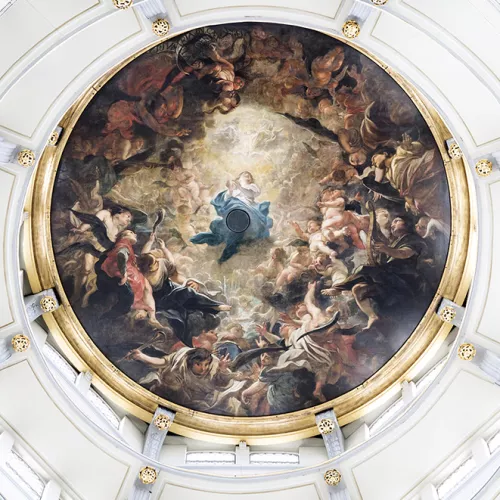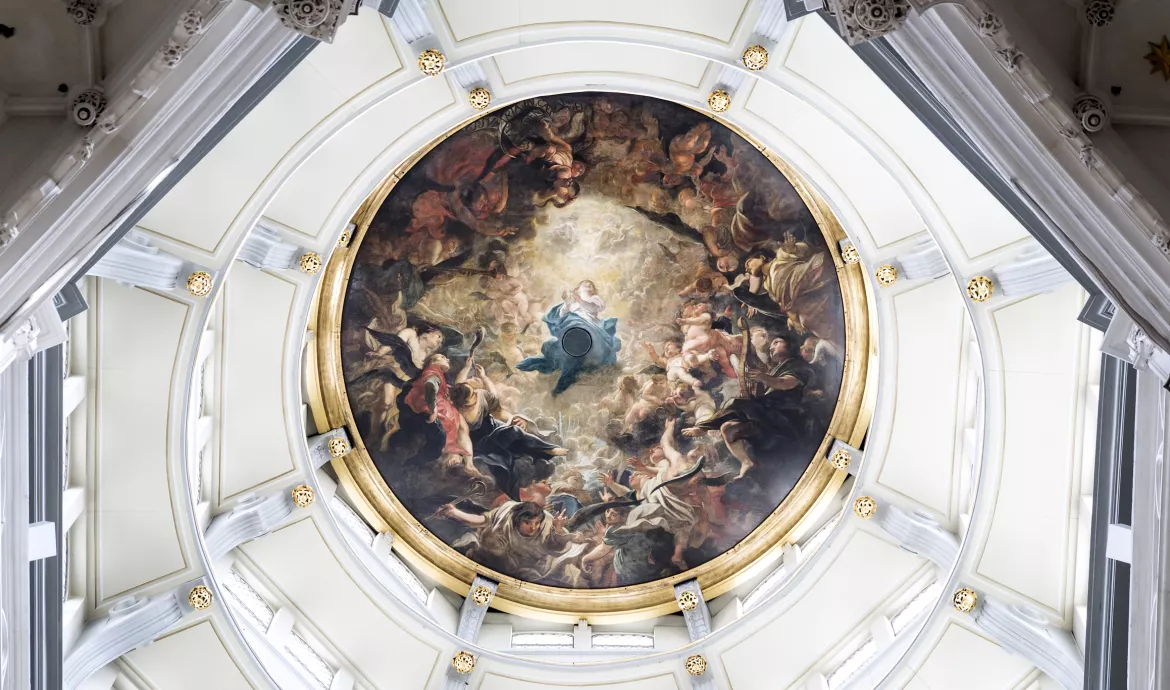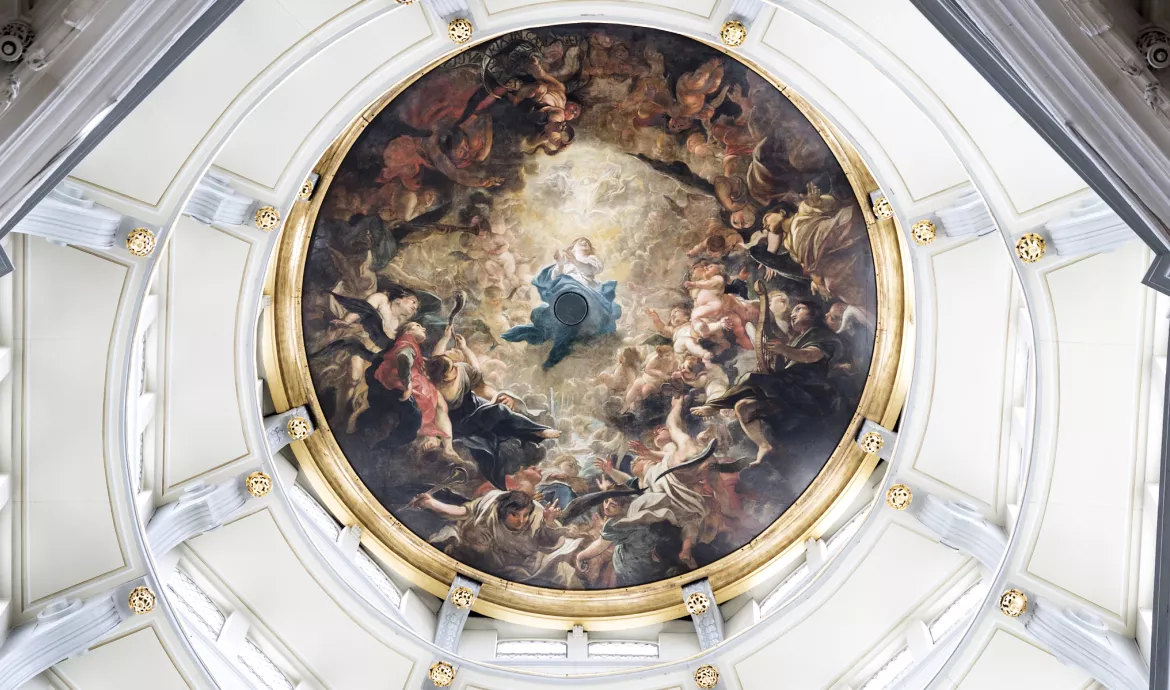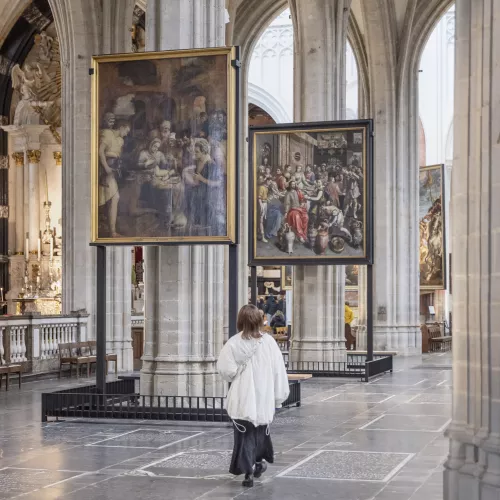Above the intersection of the nave and the transepts soars the so-called Crossing Tower. Built in the latter half of the sixteenth century, it is the youngest section of this church. The combination of harmonious proportions and the elegant play of light dovetails perfectly with the Gothic building style. Moreover, the seventeenth-century painting by Antwerp master Cornelis Schut intensifies the experience. This is a great spot to take a moment and ponder the architectural splendour of the Cathedral. Naturally, like any other church it aims to be a Domus Dei - a House of God. But at the same time this edifice illustrates what wondrous feats man is capable of. Imagine the deep sense of pride the inhabitants of Antwerp felt when they saw this marvellous edifice rise up! To this day, the Sinjoren are ever so proud of their Cathedral.
Crossing Tower
How can you say
earth should give me joy? Each thing
born is my burden; I cannot succeed
with all of you.
And you would like to dictate to me,
you would like to tell me
who among you is most valuable,
who most resembles me.
And you hold up as an example
the pure life, the detachment
you struggle to achieve--
How can you understand me
when you cannot understand yourselves?
Your memory is not
powerful enough, it will not
reach back far enough--
Never forget you are my children.
You are not suffering because you touched each other
but because you were born,
because you required life
separate from me.
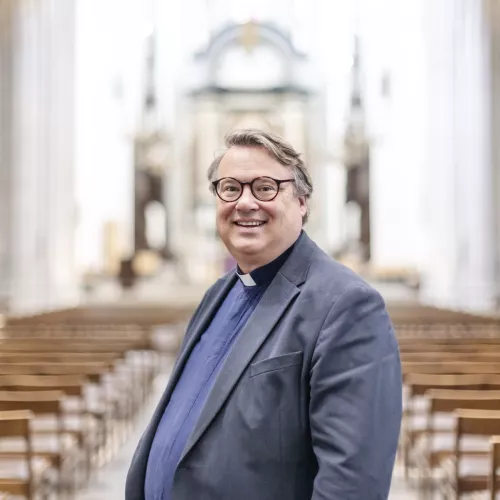
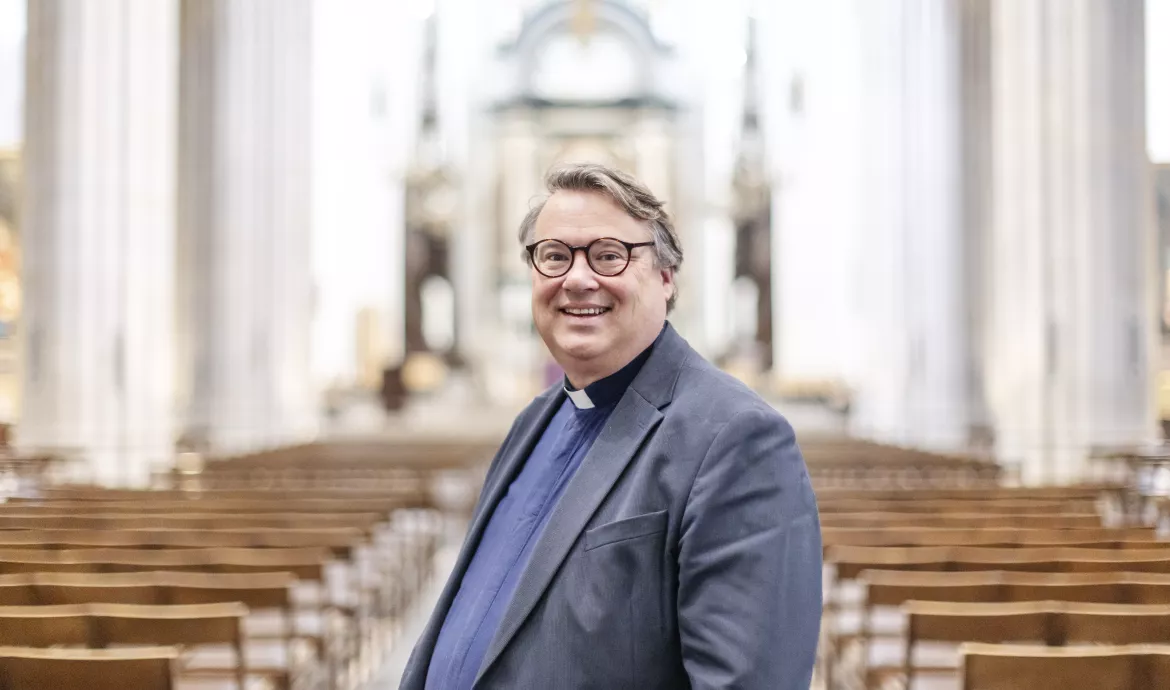
Crossing Tower
The restoration in the 1980’s revealed that the Crossing Tower was not attached to the main building. The wooden construction had been placed on top of the four pillars as a kind of lid. This is because the builders were convinced this would only be a temporary solution. Four hundred years later, the construction is regarded as permanent. Huge metal beams now keep the cover in place.
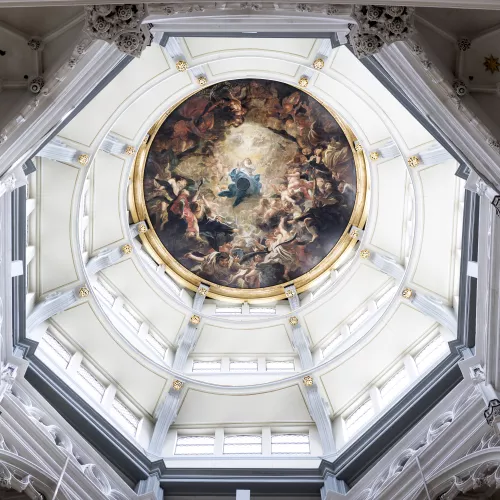
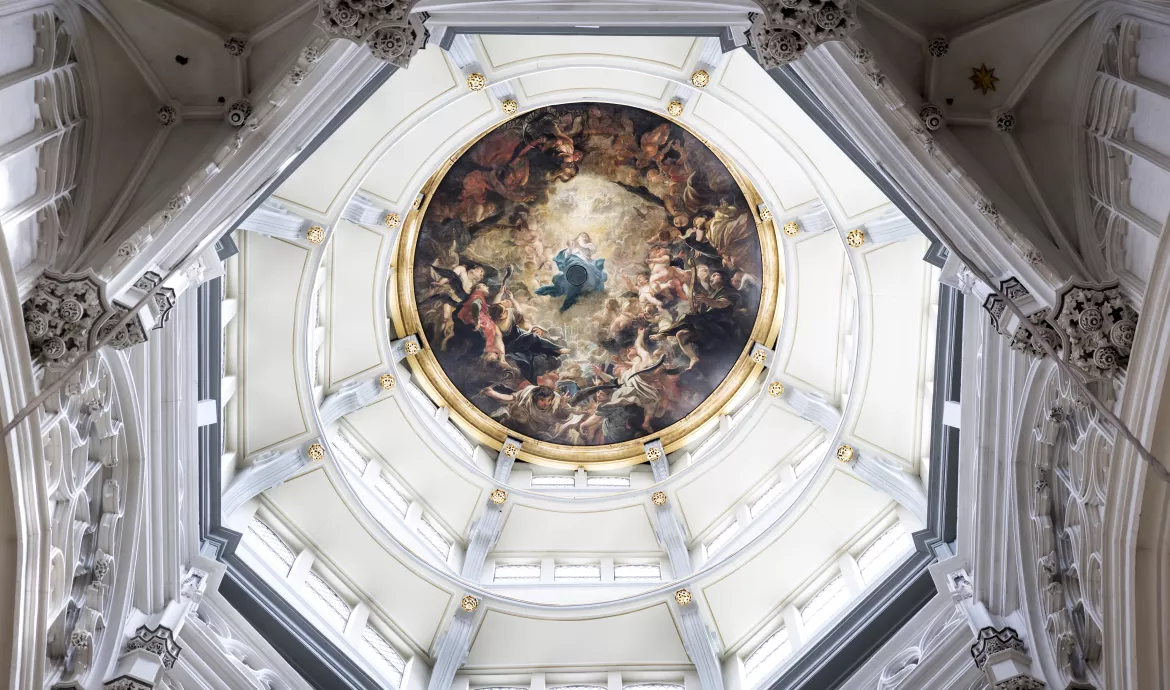
Crossing Tower
For the faithful a church building is a Domus Dei, which is Latin for ‘House of God’. God calls the church home. Medieval cathedral builders wanted to create a building that reflects what the biblical God stands for. Two characteristics of that concept of God took centre stage: harmony and light. We intuitively link beauty to the mathematical principle of proportionality. That is why geometrical figures are so important. Note how the crossing tower is supported by a square, transitions into an octagon and ends in a circle. That is how harmonious God truly is. Even more important when building a Gothic church is the incidence of light. Just as sunlight bestows life upon all living things, so is God a life-giving source of light for the faithful. The crossing tower invites in an abundance of light. Harmony and light indicate that a cathedral like ours is a Domus Dei.
